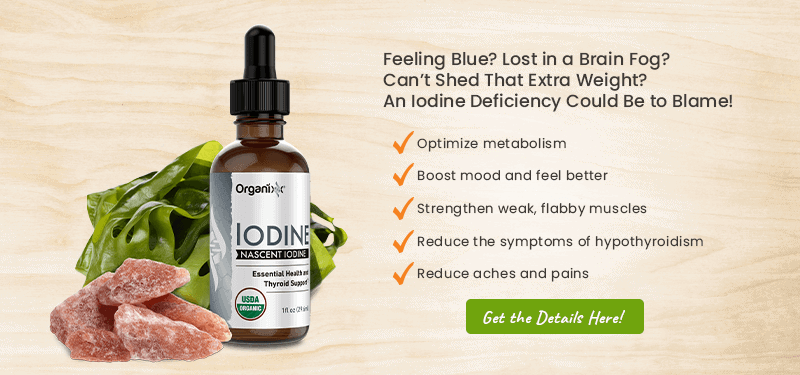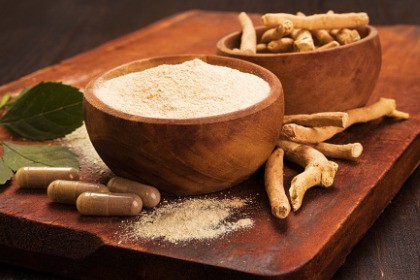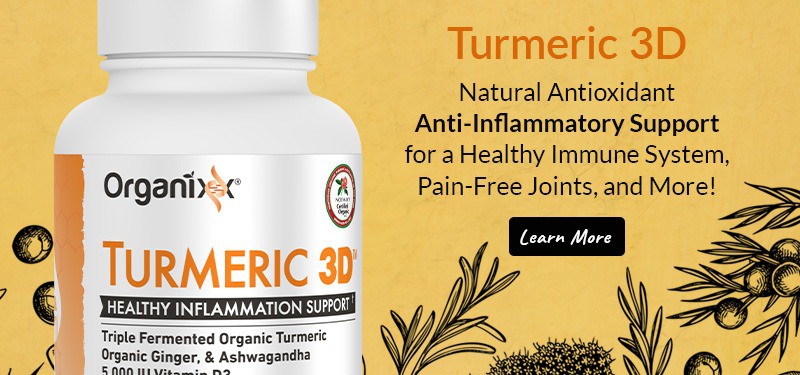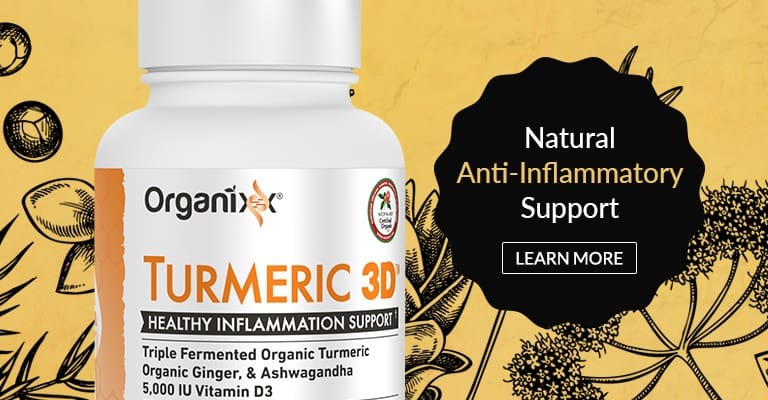Video Transcript:
Today’s question comes from John C., “How can you tell if hot flashes are hormonal acidosis or Lyme co-infection issues?” John, that is such a great question and it is honestly very hard to tell, many times, where the sources of hot flashes are coming from within your body.
Test…Don’t Guess
Honestly, what I recommend is to test and not guess. And to also set up appointments with those sort of clinicians that might be working with you in hormones, or maybe your primary care provider that’s working with you with Lyme. But, to ensure that we evaluate the body’s metrics in a whole assortment of things.
Get a Full Hormonal Panel
I’m going to recommend a few tests that you might want to have run. The first, if you’re not sure if it’s hormonal, let’s identify your hormones, a full hormone panel. That involves assessing your reproductive hormones, and for men and women, this includes estrogen, testosterone, and progesterone.
Many men think that they might not be producing estrogen and progesterone and in fact, they are. Just not at the levels like women and their cycles are very different. But, you are testing that. Sometimes, men will present with elevations in estrogen. There are three types of estrogens that we want to test. Those are some things to consider that might be behind hot flashes.
Get A Full Thyroid Panel
Another value to have tested is your thyroid, a full thyroid panel. Let’s rule out Hashimoto’s, because your thyroid gland, if it is in a hypo state, that can cause you to feel cold and hot in different parts of your body. So, you might have cold hands or feet, but you might be feeling really hot in the torso. If you’re feeling a torso hot flash, it might be thyroid-related.
Get Your C-Reactive Protein Value: An Inflammatory Biomarker
Another value to address is c-reactive protein. This is just a really good biomarker of any inflammatory state within the body. That helps us understand, are we dealing with maybe an infection or are we dealing with any type of underlying disease or inflammatory state that we need to address?
Sometimes, c-reactive protein is run by cardiologists, because it’s often a biomarker for heart disease. But, it can be also a marker of inflammation in a knee, or arthritis, or a Lyme scenario. Get that value for sure.
Test Your Cortisol Levels
Then, another hormone panel to have run is to test your cortisol saliva. At least, you have four, we call it a diurnal cortisol level. Some clinicians are running this and clinicians like myself, we do a lot of tests where you can order them online, have them shipped to your home. Then, you can run the labs and mail them out to the lab. They actually provide you results very quickly.
Cortisol is one of these things where cortisol imbalances can lead to hot flashes and night sweats. That can be also an underlying factor for thyroid imbalance, for hormone imbalance. So, evaluating your cortisol in the morning, at lunch, at dinner, and right before bed is a really good way to evaluate your circadian rhythm.
That’s the rhythm of your natural waking. You’re kind of at your highest energy cortisol point and then you should be dipping and slowly going to your lowest point at night. A lot of folks, when we test cortisol, it doesn’t work out that way. That’s okay, it’s just the sign that your body’s stress response mechanism is heightened. And often, that is heightened due to underlying physiological, biochemical imbalances. An infection, a flare. Identifying that source is really critical.
Could It Be Acidosis?
Now, when it comes to acidosis, labs, kidney values, liver values, enzyme values, and also running a urinalysis will be helpful. Also, if you’re not sure if it’s acidosis and we might be dealing with some underlying diabetes or insulin resistance, let’s make sure you’re testing your glucose every day. Know that when you test your glucose, so that’s your blood sugar value, when you test in the morning, that’s ideally going to be your highest peak. But, if your cortisol is imbalanced, your insulin and your blood sugar levels are going to near the cortisol spikes.
It’s not uncommon for folks to test their blood sugar levels throughout the day and get all sorts of random numbers. Sometimes really high, sometimes moderate levels, or normal levels. It’s best to test several times throughout the day, ideally in the morning, right around mid-afternoon, right before dinner, and right before bed. That’ll match up with your cortisol values and then you can identify if cortisol is driving your blood sugar imbalances, that might be leading to hot flashes or kind of a heat experience. Or, if there’s something else going on. I like to use our labs to rule out things as well.
Testing for Lyme Disease
Now, with Lyme, this is a whole other ballgame when it comes to evaluations – evaluating Lyme and testing. One of the things that I’ve found in referring patients to specific Lyme specialties is to identify if there’s a spare heat, any type of bacteria present in the blood, identify and evaluate by live blood cell analysis.
That’s a little different than the standard testing that we see. Even then, some testing resources are not as comprehensive as they need to be. If it is Lyme and we’ve identified that, then there’s a possibility that the Lyme could be impacting the cortisol. It could be impacting the reproductive hormones.
Test…and Then Retest
Make sure you do a full analysis and don’t rely on Dr. Google. Really get the evaluation of where your body stands and then, retest in six months. Do whatever you need to do. Take the measures to work whatever protocols provided for you. Definitely, if you need any resources, I’d love to help.
Don’t hesitate, John, to contact me if you need any additional resources or you want to review your labs. I do that with a lot of patients, where they’ll book a 30-minute appointment and we’ll review the lab results. That can be very helpful.
An Offer for the Organixx Community
One of the really exciting things that we have here at Organixx, in my partnership with Organixx, is I’m offering all Organixx consumers and customers a special discount to schedule an appointment with me. There will be information on how to access this special discount.
John, for you or anybody else that wants me to review your labs, I’d love to do that. We can put together a very personalized, very tailored, specific protocol to meet your needs. Really address the hot flashes and identify where are they coming from. Because identification, utilization of labs, and putting together a very specific, comprehensive plan is really the true path to healing.
Thanks, John, for asking that question. I hope that’s been helpful and I look forward to hopefully working with you soon.
When your organs are working hard to detoxify, you want the purest form of iodine possible to help them work more efficiently. It only makes sense to use an organic form that’s totally natural and free of chemicals. Organixx Iodine is one of the only formulas that is USDA Certified Organic. It’s a pure, nascent form of iodine which your thyroid can use immediately.

Video Transcript:
Today, I’m going to share with you three tips for staying asleep. One of the most common complaints that I get is folks finding that they’re waking up in the middle of the night. Generally, that will be between 1:00 AM and 3:00 AM. And if you are experiencing that kind of frequency in waking up and you’re noticing the same time every night you’re waking up, it’s going to tell us a little bit more about the imbalance in your circadian rhythm. That’s your body clock.
Balancing Our Circadian Rhythm
A lot of my patients have an imbalance, kind of disjointed and reverse body clock. Their circadian rhythm has them waking up or staying awake at night, versus being awake during the day. And I want to share with you there are really three kinds of key tips for balancing this. But there’s really also three core reasons why you’re waking up or having an imbalance in your sleep at night.
So, the three tips are going to address the three different root causes, so I want to share with you the reason why you might have a hard time staying asleep, and then I’m going to share with you the three solutions to address those root causes.
#1. Addressing Hormonal Imbalances
So, number one, all three of these are going to be involving some sort of degree of hormonal imbalance. The most imbalanced organ that we find that will keep you waking up at night is going to be your liver. So your liver is going to either be awake or not hibernating at night, meaning our liver has to rejuvenate. And depending on lifestyle habits, depending on caffeine consumption or alcohol consumption, dietary consumption, or stress influences and hormonal imbalance, then that can lead to the liver not shutting down and hitting its rejuvenation status. So generally, that 1:00 AM, 3:00 AM time, we can correlate that to being liver focused.
Now, the other root cause is going to be neurotransmitter-related. This is neuroendocrine. This is all about your brain sending signals to assorted endocrine glands that are going to be causing you to have that imbalance. Generally, when I lab test my patients, I’ll see lower GABA neurotransmitter levels and lower melatonin levels. These also are going to be indicative of neurometabolic diseases that can skew that whole sleep cycle.
And then another core cause, which affects so many of us, is stress. Stress can directly flip-flop and change our circadian rhythm. So, addressing those three common imbalances are going to be critical for you staying asleep.
So how do we do that? Number one is to support your liver, and this is so easy. I recommend grabbing dandelion tea and drinking that two to three times a day, so a cup of dandelion tea in the morning, around lunchtime, and maybe even a few hours before bedtime will really help support your liver detoxification. It can also help support some of that hormonal imbalance. The way the liver is able to synthesize and metabolize estrogen is really critical. And it allows the detoxing of the liver during the day so that your liver can go into a restorative state and will keep you sleeping longer. I love that. It’s one of the fastest fixes for that waking up in the middle of the night.
#2. Maintaining Melatonin Levels
Number two is to address the melatonin imbalance, and this is really important because melatonin, we have a change as we age in the body’s production of melatonin. And our pineal gland is the gland that’s producing the melatonin. And as we age, we actually see a calcification of the pineal gland, so it’s very common as folks start aging, as they get into their 40s, their 50s, and 60s, we start to see the sleep imbalances change. Well, that ends up being indicative of what’s happening with the pineal gland.
When we’re looking for deeper balance of the pineal gland and the preservation of that gland, we need to support it with about 1-3 milligrams of melatonin. And the best time to take that is about an hour to two hours before you go to bed. That also helps support waking up and invigorating the pineal gland so we see less of the calcification. You’re going to see long-term benefits to your neuroendocrine health. But more importantly, you’re going to see being able to sleep longer, more fully, and ultimately, we’re slowing down your aging process.
#3. Keeping Stress Hormones In Check
Third and final way to get sleep thoroughly and having longer, better improved sleep is to address your stress hormone levels. And this is really important, exercise is one of the most clinically researched and proven ways for you to lower your stress hormones. I do recommend that you exercise at minimum four hours or more before your bedtime, so meaning try to exercise in the morning. Get some natural sunlight. Definitely exercising outside is great. Granted, in the winter months, sometimes that’s challenging, but making sure you exercise before lunchtime is a better practice to support that whole circadian rhythm.
The other thing that I recommend that’s right here at Organixx is going to be Magnesium 7. Magnesium is another pro sleep supportive supplement. It actually helps to release toxins and really fluid accumulation that can often cause individuals to get up and urinate during the middle of the night. That’s a common, common complaint I hear from both men and women, where sometimes they’re dehydrated and we need to help support that whole sleep balance by making sure magnesium is taken throughout the day.
So, if you are sleep imbalanced, I’m recommending taking two capsules of Magnesium 7 right when you wake up, and then take another one capsule, one or two capsules right at dinner time. Allow space for the magnesium to help articulate that fluid flush, and you want to make sure that’s anywhere from two to three hours before bedtime.
And last and final, one of my favorite complexes that is very powerful at lowering your stress levels is a complex called Relora. Relora is a combination of two plant barks. It’s magnolia and philodendron. These are actually shrubs that most of us have in our backyard. And unbeknownst to us, they are very helpful in lowering the cortisol level. That’s the stress hormone that sometimes gets flip-flopped. So, adding Relora in the evening time, maybe one or two hours before your desired bedtime, will help your stress level decrease and start to change the flip-flop of your circadian rhythm.
So, these are three powerful tips to help you stay asleep better and longer, and will help support more rest-filled sleep. Let us know how these tips help you get more restful sleep.
Magnesium deficiency is linked to stress, diabetes, heart disease, osteoporosis, chronic fatigue syndrome, depression, anxiety, trouble sleeping, sore muscles, migraines, and many more debilitating health conditions.
If your body needs magnesium, you want the most beneficial kind your body can actually absorb. Organixx Magnesium 7 gives you seven (7) of the very best, most bioavailable types of elemental magnesium available.

Ashwagandha (Withania Somnifera Dunal) is an important herb used in the ancient Indian system of medicine known as Ayurveda to promote general health and well-being [1,2]. In Ayurvedic practice, ashwagandha is classified as a Rasayana, which means an herb or preparation that rejuvenates, extends life, and promotes a youthful state of physical and mental health. Read on to discover more about ashwagandha’s incredible health benefits in general and a special potent “superhero” form known as KSM-66 ashwagandha.
What Does Ashwaganda Do?
Ashwagandha’s superpower is that it is an adaptogen. Adaptogens are non-toxic therapies that normalize our bodily functions – both physical and mental – that are thrown out of balance when we are exposed to chronic, uncontrolled stress. They do so by correcting imbalances in the neuroendocrine and immune systems [2]. In short, adaptogens enhance our ability to cope with stress.
There are more than 35 natural compounds in ashwagandha including:
- alkaloids
- steroidal lactones
- saponins
- withanolides
These compounds have been shown to have anti-stress activity in multiple laboratory models of chronic stress and in some human studies as well [1-5].
Additionally, ashwagandha extracts as well as specific bioactive compounds present in this plant – primarily in the roots – have been shown to help:
• counter pain and joint swelling associated with arthritis
• strengthen various components of the immune system
• protect the brain and nervous system
• slow down or even kill abnormal cells
• enhance both male and female sexual desire and function
What Is KSM-66 Ashwagandha?

KSM-66 Ashwagandha is a high-concentration ashwagandha root extract manufactured and sold by Ixoreal Biomed, located in Hyderabad, India [6]. Ashwagandha KSM-66 is made solely from ashwagandha roots, which contain its main bioactive ingredients, without using any other parts of the plant that are considered to be less effective.
Standardized Withanolide Content
A unique feature of KSM-66 ashwagandha is that it’s standardized to a withanolide content of at least 5 percent. Withanolides are a group of around 300 naturally occurring steroid compounds, some of which are naturally present in ashwagandha.
One example is Withaferin A, an anti-inflammatory compound that has also been shown to stop tumors from growing their own blood vessels, slowing down their growth, and perhaps even shrinking them.
Last but not least, KSM-66 ashwagandha is produced by a unique extraction process, based on the principles of “green chemistry,” without using alcohol or any synthetic solvents.
Let’s take a closer look now at some of KSM-66 ashwagandha’s benefits for health.
What Too Much Cortisol Does to the Body
Any stressful event in our lives causes our adrenal glands to produce cortisol, a steroid hormone that acts to control blood sugar levels, regulate metabolism, lower inflammation levels, influence memory formation, and manage salt and water balance [7].
The more stressed we are and the longer we’re stressed, the more our adrenals respond by releasing cortisol into our bloodstream. Too much cortisol in the blood over a prolonged period of time can lead to:

- rapid weight gain
- high blood pressure
- osteoporosis
- muscle weakness
- mood swings
- anxiety, depression, or irritability
- increased thirst and frequency of urination [7]
Ongoing high cortisol levels can also eventually cause a lack of sex drive in men. In women, periods typically become irregular, less frequent, or may even stop altogether (amenorrhea).
How Can Ashwagandha Help Us Cope With Stress?
To answer this question, a double-blind, randomized, placebo-controlled trial was conducted to assess the safety and efficacy of KSM-66 ashwagandha (which, as mentioned above, is a high-concentration, full-spectrum ashwagandha root extract) in 64 adults [5]. After 60 days of treatment, the study authors observed a “substantial reduction” in four separate measures of stress in the study participants.
KSM-66 ashwagandha also reduced levels of the hormone cortisol in the blood. By lowering cortisol, ashwagandha tones down the body’s response to stressful situations, in effect “calming us down.”
No serious adverse events were reported [5] and the study researchers concluded that:
“High-concentration full-spectrum Ashwagandha root extract safely and effectively improves an individual’s resistance towards stress and thereby improves self-assessed quality of life.”

Similarly, in another randomized, double-blind, placebo-controlled study, 60 stressed but otherwise healthy adults were randomly assigned to take either a placebo or an ashwagandha root extract once daily for 2 months [8].
At the end of the study, participants given ashwagandha showed a significant reduction in their stress, anxiety, and depression scores. Once again, ashwagandha consumption was associated with a greater reduction in the levels of cortisol in the blood, when compared with placebo [8].
The Connection Between Stress and Obesity
Chronic stress has been associated with many illnesses, including obesity. In a double-blind, randomized, placebo-controlled trial, ashwagandha consumption was seen to lead to significant reductions in emotional and uncontrolled food cravings while also lowering cortisol, body weight, and body mass index (BMI) in 52 subjects subjected to chronic stress [9].
Indeed, laboratory experiments in mice have shown that one of the main active ingredients in ashwagandha known as Withaferin A can protect against obesity caused by a high-fat diet by reducing inflammation in the liver, oxidative stress, and insulin resistance [10].
These and other findings make it clear that ashwagandha is a powerful tool in our battle against ongoing stress, likely by regulating various specific aspects of our hypothalamus-pituitary-adrenal (HPA) axis. This is an interactive neuroendocrine system that plays a key role in maintaining our body’s internal equilibrium, along with orchestrating our body’s response to stress.
Ashwagandha Benefits for Joint Pain
Ashwagandha is a key ingredient in many Ayurvedic formulations prescribed for joint-related conditions such as osteoarthritis. Indeed, many research studies show that ashwagandha and its bioactive ingredients help to manage and reduce inflammation levels.

For instance, in a double-blind, placebo-controlled cross-over clinical trial published in 1991, 42 patients with osteoarthritis were randomized to receive a formula containing ashwagandha, frankincense, turmeric, and zinc – or placebo – for three months [11].
Clinical efficacy was evaluated every 15 days in terms of severity of pain, morning stiffness, Ritchie articular index (a weighted score of tenderness and swelling in 53 joint groups, each scored on a 0-3 scale), joint score, disability score, and grip strength. Throughout the study, the herbal formula was seen to significantly reduce the severity of joint pain and disability. No significant adverse effects were reported.
In another 2015 study published in the Indian Journal of Medical Research, 86 patients with joint pain were given 5 grams of ashwagandha powder twice a day for three weeks with lukewarm water or milk [12]. Then these patients took another Ayurvedic preparation known as Sidh Makardhwaj – a formulation used in rheumatoid arthritis and neurological disorders – daily for the next four weeks.
Treatment with ashwagandha and Sidh Makardhwaj for seven weeks led to significantly improved scores of joint swelling, tenderness, and pain, indicating that this combination treatment is likely to be beneficial in rheumatoid arthritis. Indeed, in earlier laboratory experiments, an ashwagandha root extract was seen to reduce inflammation in knee cartilage taken from chronic osteoarthritis patients [13].
Ashwagandha for Boosting Endurance, Muscle Strength, and Recovery

Ashwagandha has long had the reputation of being able to enhance cardiovascular endurance and physical performance. As stated earlier, consuming this herb is said to impart the strength and stamina of a horse [1].
In a 2015 prospective, double-blind, randomized, and placebo-controlled study, KSM-66 ashwagandha was shown to significantly boost cardiorespiratory endurance and improve self-reported quality of life (QOL) in 50 healthy male and female athletic adults [14].
In another 2015 randomized, prospective, double-blind, placebo-controlled clinical study published in the Journal of the International Society of Sports Nutrition, 57 young men with little previous experience in resistance training were randomized into treatment and placebo groups [15]. Participants in the treatment group consumed 300 mg of ashwagandha root extract twice daily, while those in the control group took starch placebos instead.
Multiple measurements – including muscle strength, muscle size, body composition, testosterone levels, and muscle recovery – were made before the start of the study. Both groups then went through resistance training for 8 weeks and the measurements were repeated when they were done.
Promisingly, the group of men taking ashwagandha root extract had significantly greater increases in muscle strength and arm muscle size relative to the placebo group. They also showed significantly less exercise-induced muscle damage, higher testosterone levels, and a greater reduction in body fat percentage.
In other words, ashwagandha supplementation is associated with significant increases in:
- muscle mass
- strength
- recovery after exercise

In another randomized, double-blind strength and conditioning study known as the STAR trial, 500 mg of an extract of ashwagandha roots and leaves was consumed by recreationally active young men for 12 weeks [16].
Body composition, muscular strength, power, and endurance, cycling time trial, and blood chemistry were measured before and after the study. Consuming the ashwagandha extract was seen to improve upper and lower body strength and improve distribution of body mass in these men, once again without causing any serious adverse effects.
Ashwagandha as an Immune System Enhancer
Ashwagandha enhances immune function. In a small study, ashwagandha root extract was seen to activate multiple types of immune cells in the participants [17].
Similarly, a tea fortified with five herbs including ashwagandha was seen to activate so-called “natural killer” (NK) cells in not just one, but two independent double-blind intervention studies conducted in India on healthy volunteers [18]. NK cell activity is an important aspect of our body’s early immune response to infections.
Interestingly, in other situations, ashwagandha extracts have also been shown to suppress specific components of the immune system. For example, one of the characteristic features of rheumatoid arthritis (RA) is the continuous production of pro-inflammatory compounds known as cytokines in joint cavities, triggering inflammation and cartilage destruction. In laboratory experiments in rats, a root extract of ashwagandha was seen to suppress production of pro-inflammatory cytokines and reduce oxidative stress [19].
The Brain-Boosting Benefits of Ashwagandha
Numerous laboratory studies show that ashwagandha – traditionally used in Ayurveda to boost intellect and memory – can slow, stop, and reverse damage to brain cells and may even help to reconstruct brain cell networks.

For instance, ashwagandha extracts have been shown to promote nerve cell growth in culture [20]. Withanolide A, withanoside IV, and withanoside VI were identified as the bioactive compounds responsible. Ashwagandha extracts as well as specific bioactive compounds (e.g., withanolide A) have also been shown to protect nerve cells in culture against damage caused by various toxic agents [21]. Amazingly, the administration of withanoside IV for 21 days led to recovery in a rat model of spinal cord damage [20].
It is well known that toxic free radicals damage brain cells and contribute to both normal aging and aging-related health conditions. In a 2015 study, both ashwagandha extracts and a bioactive compound known as withanone were seen to protect nerve cells from oxidative damage [22].
Not surprisingly, ashwagandha has long been used in Ayurveda to enhance memory and improve mental faculties. In a randomized, double-blind, placebo-controlled pilot study, 50 adults suffering from mild cognitive impairment (MCI) – who are considered to be at a greater risk of developing dementia later in life – were treated with either 300 mg of KSM-66 ashwagandha twice daily or placebo for 8 weeks [23].
After 8 weeks, the ashwagandha KSM-66 group showed significant improvements in both their immediate or short-term as well as general memory, relative to the placebo group. The ashwagandha group also showed significant improvements in executive function, sustained attention, and information-processing abilities.
Can Ashwagandha Even Help Protect Against Abnormal Cell Growth?
Ashwagandha and other species of Withania are well known in folk medicine traditions for their anti-cancer properties and their extracts have been shown to be toxic for multiple types of cancer cells in laboratory experiments [24]. They appear to act by slowing down or even stopping cancer cell growth by inducing programmed cell death or “apoptosis.”

As stated earlier, Withaferin A, an anti-inflammatory withanolide, has been shown to act as an anti-angiogenic. In other words, it can help stop tumors from growing their own blood vessels, slowing down their growth, or perhaps even shrinking them.
As reported in the journal Biochemical Pharmacology in August 2019, growing evidence suggests that Withaferin A is very effective against cancer [25]. For instance, low response rate and recurrence are common issues in lung cancer.
Withaferin A has been shown to exhibit potent toxicity against several lung cancer cell lines in laboratory experiments. Not only that, the combination of Withaferin A and chemotherapeutic drugs were shown to have additive effects on lung cancer cell survival [26].
Withaferin A has also been shown to be toxic for breast cancer and cervical cancer (HeLa) cells in laboratory experiments [27,28]. Similarly, other bioactive compounds in ashwagandha have also been shown to be toxic for cancer cells in laboratory experiments [29].
KSM-66 Ashwagandha’s Impact on Libido and Infertility
Ashwagandha root extract has been shown to enhance sexual desire and function in both men and women. For instance, ashwagandha has been described in Ayurvedic medicine as an aphrodisiac that can be used to treat male sexual dysfunction and infertility.
In a pilot study conducted to evaluate the effects of ashwagandha in patients with a low sperm count (known as oligospermia), a total of 46 male patients were randomized either to treatment with KSM-66 Ashwagandha or placebo for 90 days [30].

At the end of the study, participants given KSM-66 ashwagandha showed a 167% increase in sperm count, a 53% increase in semen volume, and a 57% increase in sperm motility relative to baseline. In comparison, only minimal changes were seen in the placebo group.
Further, a greater improvement in hormone levels was seen with KSM-66 ashwagandha. In other words, ashwagandha is likely to be very effective in treating oligospermia, which is a leading cause of male infertility.
Similarly, a meta-analysis showed that ashwagandha significantly improved sperm concentration and sperm motility even in men with normal sperm parameters, without any adverse effects [31].
Ashwagandha has also been shown to enhance sexual function in women. At the Trupti Hospital and Santati Fertility Center located near Mumbai in India, 50 women were randomized to either ashwagandha treatment or placebo (300 mg twice daily) for 8 weeks [32]. In this study, ashwagandha supplementation was shown to lead to significantly higher scores in multiple markers of sexual desire and function.
But Is Ashwagandha Safe?
Ashwagandha root powder has been used in Ayurvedic medicine for centuries, and it is believed to be completely safe and free of any toxicity.
Extracts of ashwagandha made using alcohol and water will likely contain higher doses of its natural ingredients, relative to raw powder. So far animal studies with such extracts have shown no evidence of toxicity, even at relatively high doses [33].
However, it is always advisable to take an herbal supplement only after consulting your healthcare provider, especially if you have any ongoing health conditions or if you’re pregnant or breastfeeding.
Organixx Turmeric 3D Contains KSM-66 Ashwagandha
The Organixx Turmeric 3D formula has always contained ashwagandha extract. As part of our commitment to seeking out the cleanest and most effective supplement ingredients, we upgraded to KSM-66 Ashwagandha in 2019 – the most clinically studied ashwagandha on the market.
KSM-66 is a full-spectrum extract produced using a unique proprietary extraction process, based on “Green Chemistry” principles, without using alcohol or any other chemical solvent.
Turmeric 3D from Organixx provides you one of the most “bioavailable” forms of turmeric due to its unique fermentation process. This means your body experiences the maximum benefits of the purest, most potent turmeric available!






